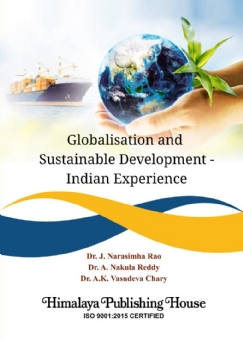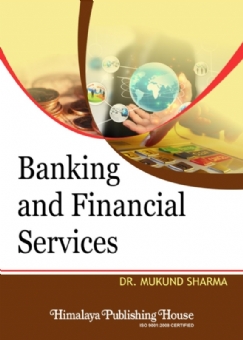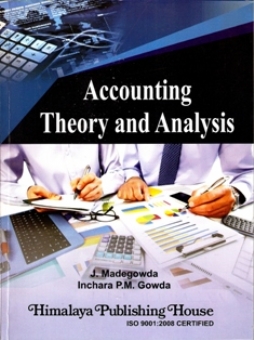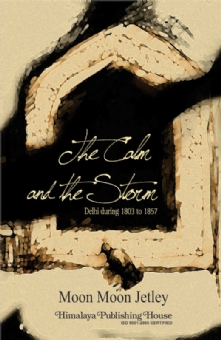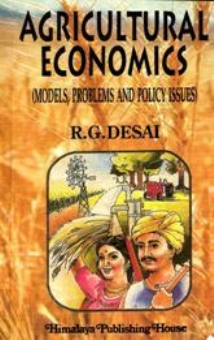Globalisation is an economic tidal wave that is sweeping over the world in no hope of stopping as it cannot be stopped from all indications. People around the globe are more connected to each other than ever before. Information and money flow more quickly than ever. Global manufacturing goods and services produced in one part of the world are increasingly available in all parts of the world. International travel is more frequent and international communication is commonplace. It is the connecting chain of domestic economies, industries, cultures and government policies around the world. This integration has occurred through increases in the technological capabilities and efficiency of world trade, communication and transportation. Primarily, globalisation refers to the economic integration of the global markets, but it is also used to describe the socio-cultural integration that has been brought on by the rise of the Internet. World governments now focus on decreasing barriers to trade and actively promote international commerce in relation to investments, goods and services.
International contacts and exchanges are no way new to the world. It dates back to the time of the Mercantilists who were popular from the sixteenth to the middle of the eighteenth century. They traversed the whole world looking for precious metals; in the process, partitioned and colonised all parts of the world. Even in the Classical era, exchange of goods and services was promoted through the law of comparative advantage. This was made possible by the existence of comparative advantage, i.e., a situation in which one country has a comparative cost advantage in the production of one commodity over another country. In addition, in the twentieth century, the Neo-classicists also saw the possibility of trade and exchanges among countries. This was made possible because various countries were endowed with different proportions of factors of production. Therefore, countries were encouraged to produce and exports commodities in which they have abundant supply of factors of production. Hence, globalisation dates back to human history. This was carried out in the form of trade, exchanges, inter-country movements, travels and migration. The world economy has become highly dynamic and has acquired an unprecedented growth potential. Developments in technology, financial, information technology and other fields have created vast opportunities for generating economic growth and benefits.
Contents –
Theme-I: Sustainable Development
1. UN Sustainable Development Goals and Climate Change Challenge in India – Dr. (Mrs.) Dhulasi Birundha Varadarajan
2. Global Trade and Sustainable Development: The Positive Role of the WTO – Dr. G. Mallikarjun
3. The Endeavors of Telangana towards Sustainable Development – Dr. B. Balaswamy and Mr. Ramesh Palvai
4. Global Earth Summit Aims Which Affect on Indian Context – D. Pravalika
5. Impact of Globalisation on Tribals – A Study of Telangana State – Dr. K. Varalaxmi and D. Shiva
6. Development Trajectories in the Face of Globalisation: Indian Context – Ogbochukwu Victor Uchenna and Prof. J. Narasimha Rao
7. Globalisation and Sustainable Development – Krishtee Seebaluck
8. Impact of Globalisation on Indian Economy – Dr. V. Dattahari
9. Globalisation and Sustainable Development in the Indian Context – P. Padma
10. Globalization in the Context of Poverty and Inequality: Indian Scenario – Ugyen Lhendup
11. GST – A Pathway for Sustainable Development of India – Dr. Anuradha Challa and M. Sangeetha
Theme-II: Globalisation and Agriculture
1. Impact of Globalisation on Indian Agricultural Crisis and Farmers’ Suicides – Some Issues and Challenges – Bethi Madhu
2. Impact of Agriculture on Literacy Rate in Globalisation Era – Bingi Ganesh
3. The Impact of Globalisation on Indian Agriculture sector – Eedunuri Mohan
4. Impact of Globalisation on Indian Agriculture: A Study – Dodla Vijaya
5. Impact of Globalisation on Agriculture: A Study on Indian Agriculture Sector Context – Chelpuru Madhu and Garishakurthi Ramesh
6. Perspective on Agriculture in the Context of Globalisation – Dr. P. Narender Reddy
7. Globalisation Impact of Agriculture and Industries in India – Sriramulu Bogari
8. Globalisation and Sustainable Development in Indian Agriculture: Challenges – Dr. A. Punnaiah
9. Globalisation and its Impact on Agricultural Sector – Amgoth Veeranna and Srinivas Gattu
10. Consequences of Globalisation on Indian Agriculture: A Study – Bethu Sudhakar
11. Globalisation and Indian Agriculture – Dr. N. Maria Das and Dr. K. Krishna Mohan
12. India’s Globalisation – Sustainable Growth in Agriculture: Challenges and Way Out – Dr. M.A. Malik
13. Globalisation and Agriculture (Small-scale Farmers in Kenya) – Kalama Mwatela
14. Globalisation Impact on Rural Economy – A Study – Dr. B.V. Ragavender and Dr. B. Krishnaiah
15. Sustainable Development: A Study on Green Marketing – Chelpuru Madhu
16. Agricultural Occupation and Sustainable Development in India – Ch. Chandraiah
17. Globalisation in India: Effects and Consequences for Indian Agriculture – Dr. V. Pardha Saradhi
18. Application of IT Based Agricultural Communication in India – P. Usha Lakshmi
19. Globalisation and Agriculture – R. Sandeep Jason and N. Venkatesham
20. A Comparative Analysis on Agricultural Subsidies and Food Security – Dr. Dommati Devender
Theme-III: Globalisation and Service Sector
1. Benefits and Risks of Globalisation with Special Reference to India – Shivani Mehrotra
2. Challenges of Globalisation on Foreign Trade Policy in India – Ms. Namita George D’souza
3. Globalisation and WTO – Socrates Shahrour
4. A Study of Attitude of Graduate Students towards Globalisation in Mahabubnagar District – K. Vijayalaxmi
5. A Critical Review of Renewable Energy Sector in India – Divyashree S.J. and Rekha Jagannath
6. The Dynamic Relationship between Economic Growth, Renewable Energy Consumption, Non-renewable Energy Consumption, CO2 Emissions and Trade Openness: Evidence from India – Dr. Mallaiah Jalle and Dr. J. Narasimha Rao
7. Global Sustainable Development: A Focus on Indian Aviation Industry – Dr. Shaik Nazim Ahmed Shafi
8. Impact of Globalisation on Life Insurance Sector in India – Dr. M. Savithri
9. Sustainable Development – Implications to Education – K. Padmaja and Prof. C. Madhumathi
10. Vocational Education in India: A Realistic Analysis after Globalisation – N. Shradha Varma
11. Impact of Globalisation on Primary Education with Special Reference to Ranga Reddy District – Mrs. B. Sandra Sthuthi
12. GATS and Higher in Education in India – Dr. K. Anji Reddy
13. Challenges of Globalisation on Indian Higher Education – Chilukuri Venkat Reddy
14. Public Expenditure on Education in Telangana – N. Sujatha
15. Affordable Housing in Major Cities of Outsourcing Destinations: A Comparative Study of Bangalore, Chennai, Hyderabad, Noida and Pune Areas in India – Dr. J.B. Komaraiah
16. A Digital Approach for Tackling Issues and Challenges in Health Insurance Sector – D. Padmavathi
Theme-IV: Globalisation and Service Sector
1. Globalisation and its Impact on Green Industry with Reference to Apparel Industry in Karnataka – Prof. H.P. Poornima and Dr. S. Pushparaj
2. Impact of Globalisation on Handloom Industry in India – Dr. Sampurna Mokena
3. Globalisation and Indian MSMEs – Dr. Sonia Mukherjee
4. Industrial Globalisation: Its Impact on Employment in India – Munnoor Anjaneyulu and M. Rani
5. The Role of Public Sector in India: A General Perspective – Shivalingam Vaspari and Prof. J. Narasimha Rao
6 Effects of Globalisation on Indian Industry – Dilafruz Nasirkhodjaeva
7. Impact of Globalisation on Small-scale Industry: A Case Study in Ranga Reddy District – P. Bala Padma
8. Analysis of Cryptocurrency in India and World – Vaggu Saidulu
9. Inclusive Economic Growth through Women’s Entrepreneurship in India – Rathlavath Krishna
10. An Exploratory Study on Scheduled Caste Entrepreneurship in Telangana – Dr. S. Ramesh
11. Performance of Nanakramguda Special Economic Zone: A Study – Dr. N. Govinda Reddy

